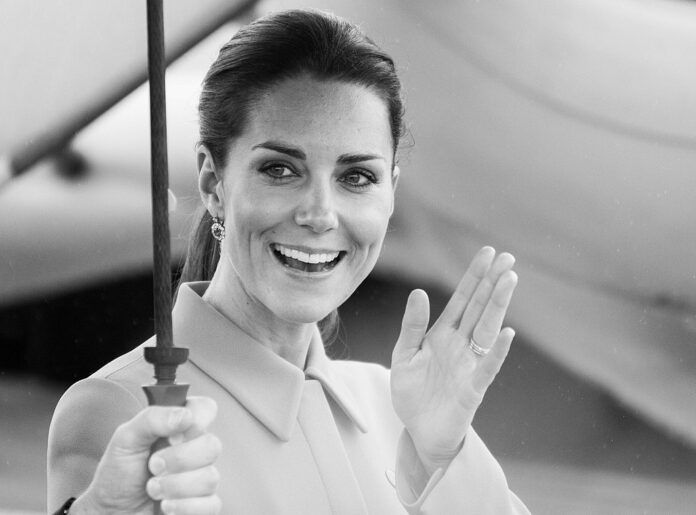The Princess of Wales voices support for the Natural History Museum’s new gardens while continuing her chemotherapy treatment
Kensington Palace has shared a new message from Kate Middleton, the Princess of Wales, highlighting her ongoing commitment to environmental causes despite her current health battle. In a heartfelt post on the official Prince and Princess of Wales Instagram account, Kate expressed her enthusiasm for the opening of the Natural History Museum’s new gardens.
“I am hugely supportive of the Museum’s commitment to create a special space which encourages people of all ages to reconnect with nature and learn more about how we can protect our natural world,” Kate wrote in her Instagram stories. She emphasized the positive impact of nature on personal well-being, stating, “I know the power of nature to support our development and wellbeing, both by bringing us joy and helping to keep us physically, mentally and spiritually healthy.”
Embed from Getty ImagesThe princess expressed hope that the new gardens would be “inspiring and transformative” for the thousands who visit them. As a Patron of the Natural History Museum, Kate visited the project in 2021 to understand its progress and remained actively involved in its development.
Kate Middleton, who is currently undergoing chemotherapy for cancer, made a notable public appearance last month at Trooping the Colour, reflecting her continued engagement with public duties despite her health challenges. She was seen again on Sunday at Wimbledon, where she joined her daughter, Princess Charlotte, to present the trophy to Carlos Alcaraz, the winner of the men’s final.
In a statement released last month, Kate shared that she was making “good progress” in her treatment but acknowledged that she was “not out of the woods yet,” describing her experience with chemotherapy as having “good days and bad days.”
Analysis:
Political:
Kate Middleton’s message about the Natural History Museum’s gardens intersects with political themes of environmental advocacy and public health. Her support for the museum reflects broader governmental and organizational efforts to promote environmental sustainability and public engagement. By leveraging her royal platform, Kate contributes to policy discussions and initiatives aimed at enhancing environmental education and conservation efforts, influencing public opinion and policy in these critical areas.
Social:
Kate’s message highlights the intersection of personal health challenges and public advocacy. Her support for the museum’s gardens while undergoing chemotherapy underscores the role of public figures in championing causes that resonate with their personal experiences and values. This act of resilience not only supports the museum’s mission but also serves as an inspiring example of how individuals can remain engaged and contribute to societal issues despite personal adversities.
Racial:
The focus of Kate’s message does not directly address racial issues; however, her advocacy for nature and well-being contributes to a broader conversation about inclusivity in environmental and health initiatives. Promoting access to natural spaces can benefit diverse communities by improving overall health and well-being, potentially addressing disparities in environmental access and health outcomes among different racial and socio-economic groups.
Gender:
Kate Middleton’s public battle with cancer and her continued engagement with charitable causes reflect broader gender dynamics in public health and advocacy. As a prominent female public figure, Kate’s experiences and actions challenge traditional gender roles and expectations, demonstrating strength and leadership. Her active role in supporting environmental causes while managing her health highlights the broader issue of women’s representation and influence in public life and charitable work.
Economical:
Kate’s support for the Natural History Museum’s gardens can have significant economic implications. The opening of such gardens is likely to attract visitors, boosting tourism and benefiting local businesses. Additionally, her endorsement may increase public interest and investment in similar environmental projects, promoting economic growth in sectors related to conservation and education. The economic impact of her support extends to the potential increase in donations and funding for the museum and related initiatives.
Technological:
While Kate’s message does not directly address technological issues, the development of the Natural History Museum’s new gardens may involve technological advancements in environmental design and education. Innovations in landscaping, sustainable practices, and interactive exhibits can enhance the visitor experience and promote conservation efforts. The integration of technology in these projects aligns with broader trends in using technological solutions to address environmental challenges.
International Relations:
Kate Middleton’s public support for environmental initiatives can influence international perceptions of the British royal family and their role in global issues. By highlighting the importance of reconnecting with nature and supporting conservation efforts, Kate contributes to the global conversation on environmental sustainability. Her involvement in such causes can enhance diplomatic relations by aligning the British monarchy with international environmental goals and collaborative efforts.
In summary, Kate Middleton’s recent message about the Natural History Museum’s gardens is a significant example of how personal challenges and public advocacy intersect. Her continued engagement with charitable causes, despite undergoing cancer treatment, underscores the role of public figures in promoting important societal issues and influencing positive change across various dimensions.
